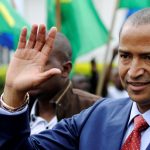Here is the paper by Borhan Osman and Anand Gopal who examine the views of a section of the Taliban political leadership on the form and functions of a possible future Afghan state, should the various parties to the current conflict come to a negotiated settlement. It analyzes interviews with Taliban officials and examines the region’s history dating back to the Islamic Emirate of the 1990s in an attempt to understand Taliban views on the following three questions:
Which actors should be included in the post-withdrawal state?
What should be the form of such a state? In particular, how flexible are the Taliban on the notion of resurrecting an Islamic Emirate, as opposed to working within the framework of an Islamic Republic? What is their view on elections?
What policies should this state adopt and implement on social, political and economic issues? In particular, has the Taliban leadership modified its notorious stances on women’s rights, education and civil liberties, as its representatives sometimes claim?
This study offers one of the first attempts to systematically interview members of the Taliban’s political commission and their allies in the movement who work in the area of outreach and media. It also elicits the opinions of key personalities outside the Taliban but closely related to the movement and with good links to their leadership.
taliban_future_state_final


